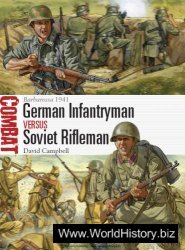Arthur Young, the noted British agriculturalist, and Thomas Jefferson, the prominent member of the new American government, both journeyed to France in the late 18th century and recorded their observations of the conditions in France on the eve of the French Revolution. The first account below is Arthur Young’s observation of conditions in Brittany in the fall of 1788 and along the Marne River in the summer of 1789, while the second is taken from a letter of Thomas Jefferson written while he was in Nice in the spring of 1788. Their views offer a stark contrast of opinion regarding the health and state of the French nation, which was on the verge of great political, economic, and social peril. The French Revolution and Napoleonic eras would consume the energy of the nation and delay the onset of the Industrial Revolution for more than a generation.
Primary Documents Arthur Young
To Combourg. The country has a savage aspect; husbandry not much further advanced, at least in skill, than among the Hurons, which appears incredible amidst inclosures [sic]. The people almost as wild as their country, and their town of Combourg one of the most brutal, filthy places that can be seen; mud houses, no windows, and a pavement so broken as to impede all passengers, but ease none. Yet here is a chateau, and inhabited____
To Montauban. The poor people seem so poor indeed; the children terribly ragged—if possible, worse clad than if with no clothes at all; as to shoes and stockings, they are luxuries. A beautiful girl of six or seven years playing with a stick, and smiling under such a bundle of rags as made my heart ache to see her. They did not beg, and when I gave them anything seemed more surprised than obliged. One third of what I have seen of this province seems uncultivated, and nearly all of it in misery. What have kings, and ministers, and parliaments, and States to answer; for their prejudices, seeing millions of hands that would be industrious idle and starving through the execrable maxims of despotism, or the equally detestable prejudice of a feudal nobility.
To Chateau Thiery... I asked for a coffeehouse—not one in the town... and not a newspaper to be seen by a traveler, even in a moment when all ought to be in anxiety What stupidity, poverty, and want of circulation! ... To those who have been used to travel amidst the energetic and rapid circulation of wealth, animation, and intelligence of England, it is not possible to describe in words adequate to one’s feelings the dullness and stupidity of France.
Thomas Jefferson
In the great cities I go to see what travelers think alone worthy of being seen; but I make a job of it and generally gulp it all down in a day. On the other hand, I am never satiated with rambling through the fields and farms, examining the culture and cultivators with a degree of curiosity which makes some take me for a fool, and others to be much wiser than I am. I have been pleased to find among the people a less degree of physical misery than I had expected. They are generally well clothed and have a plenty of food—not animal, indeed, but vegetable, which is just as wholesome. Perhaps they are overworked, the excess of the rent required by the landlord obliging them to too many hours of labor in order to produce that and wherewith to feed and clothe themselves. The soil of Burgundy and Champagne I have found more universally good than I had expected; and as I could not help making a comparison with England, I found that comparison more unfavorable to the latter than is generally
Admitted. The soil, the climate, and the productions are superior to those of England, and the husbandry as good except in one point, that of manure____
Source: A. Young, Travels in France during the Years 1787, 1788, 1789 and Works of Jefferson (Ford, ed.), as quoted in Robinson & Beard, Readings in Modern European History, Vol. I (New York: Ginn & Company, 1909), 232-234.




 World History
World History









